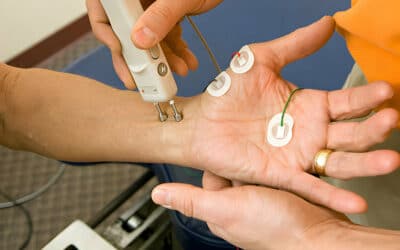Your spine consists of small bones called vertebrae. Vertebrae protect your spinal cord and provide stability to your upper body. However, various conditions can affect your spine, including osteoporosis and kyphosis. Discover whether there’s a link between these two conditions and where you can find a kyphosis doctor who can recommend the best treatment plan.
What Is Osteoporosis?
Osteoporosis is a disease characterized by a decrease in bone density and mass. These structural bone changes increase the chances of fractures, putting people with osteoporosis at higher risk of more serious injuries.
The thing about osteoporosis is that it is mostly symptomless. In fact, people often don’t know they have developed this disease until they break something.
Osteoporosis primarily affects menopausal women and older men. The fractures can occur in any bone, but hips, wrists, and vertebrae are some of the most common injury sites. When the fracture is located in the thoracic part of the spine, it can contribute to the development of kyphosis.
Osteoporosis is a bone disease that causes loss of bone mass and density, exposing people with this condition to a higher risk of fractures.
What Is Kyphosis?
Kyphosis is a degenerative condition that causes excess curvature of the spine in the upper back. This results in a hunched-over appearance because the natural curve is exaggerated. Lack of adequate treatment could result in the progression of the disease and complications like limited physical functions, chronic pain, digestive problems, body image issues, and breathing difficulties.
Here’s what you need to look out for.
Kyphosis Symptoms
Kyphosis symptoms include:
- Poor posture with a hunched-over appearance
- Uneven shoulder height
- Uneven shoulder blades positions
- Tight hamstrings
- Mild back pain and stiffness
Kyphosis is a degenerative spine condition that causes various symptoms, the most prominent being a hunched-over appearance.
How Does Osteoporosis Cause Kyphosis?
Because osteoporosis weakens vertebrae, fractures are more likely to occur. The most typical case is that the front of the vertebra collapses while the back remains intact. That results in an unusual arching forward, which causes degenerative kyphosis.
What Other Conditions Can Cause Kyphosis?
Osteoporosis is not the only condition that increases the chances of developing kyphosis. Others include injuries, disc degeneration, poor posture, Scheuermann’s disease, etc. No matter the cause, you should seek medical help if you notice any symptoms of kyphosis.
Osteoporosis increases the chances of having fractures in your spine, which can result in the development of kyphosis.
How Is Kyphosis Treated?
Your doctor will generally perform a thorough physical examination and imaging tests to determine whether you have kyphosis. Once they assess your condition, they develop a treatment plan. It may include:
- Pain medication
- Physical therapy
- Exercise
- Bracing
- Surgical intervention on rare occasions
Kyphosis treatment depends on the severity of the curvature and accompanying symptoms.
Where to Find a Kyphosis Doctor?
Space City Pain Specialists is a healthcare center focused on helping people overcome pain. That includes patients struggling with kyphosis triggered by osteoporosis. With a team of certified pain experts, you are guaranteed to get the treatment you deserve.
Schedule an appointment at Space City Pain Specialists, and let us help you manage back pain caused by kyphosis.



